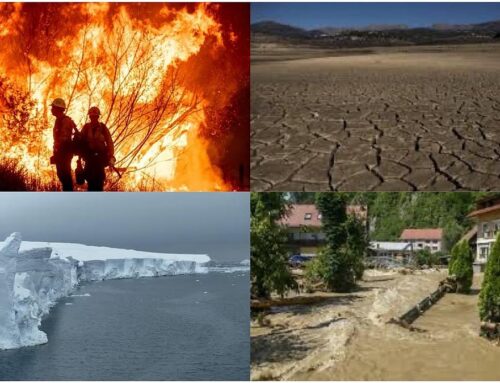Pennsylvania Honors 19 Environmental Excellence Projects Statewide in 2025
June 11, 2025
HARRISBURG, Pa. (EYT) – The Pennsylvania Department of Environmental Protection (DEP) is honoring 19 projects completed by schools, businesses, and community organizations around the state with 2025 Governor’s Awards for Environmental Excellence.
“The Environmental Excellence honorees embody the innovative thinking needed to protect our environment and shape a more sustainable future here in Pennsylvania,” said DEP Acting Secretary Jessica Shirley. “Together, we will spur the next generation of environmental stewards. These projects showcase our ability to work collaboratively to preserve and protect Pennsylvania’s natural resources.”
Applications were evaluated for their degree of environmental protection, innovation, partnership, economic impact, consideration of climate change, sustainability, and environmental justice, as well as outcomes achieved.
The 2025 Governor’s Awards for Environmental Excellence were awarded to:
Center for Science and the Schools, Penn State – AG SEED-Lings
The AG SEED-Lings program was designed to equip students and educators with the ability to provide a high-quality environmental education aligned with PA’s newly adopted STEELS standards. The program established a comprehensive online platform where all developed curricula were made available for educators across the state. This curriculum consisted of over 19 STEELS-aligned lessons designed to provide high-quality, interdisciplinary instruction. Lessons included AI-generated read-aloud in both English and Spanish to increase accessibility for different languages. In 2024, 45 educators completed the AG SEED-LINGS professional development series, resulting in the program’s implementation in 42 school districts, reaching more than 1,750 students.
Green Allies – Althouse Arboretum
The Althouse Arboretum is a student-led outdoor education center. In 2024, it saw over 17,000 visitors who engaged with programming led exclusively by a team of high school students from five surrounding school districts. Students were responsible for everything, including writing the curriculum for a summer nature camp program and hosting community events. In 2024, the organization secured a property nearby its existing arboretum, which provided a grass meadow they deemed essential to expanding programming. The arboretum constructed a trail built entirely by volunteers to connect the new land to the existing property. On the lands of the Althouse Arboretum, students have planted over 100 native PA trees, along with introducing over 50 varieties of native wildflowers and other plants onto the property and into their natural habitats. The Arboretum ran a variety of sustainability programs in 2024, including a community recycling day, which resulted in a collection of 21 tons of electronics, appliances, and scrap metal from the 426 vehicles that participated. Students also collected 78 bicycles, which were then refurbished and donated to underserved families.
East Hempfield Township – Amos Herr Wetland Restoration
The Amos Herr Wetland Restoration project converted over six acres of unused land into an ecosystem of trails, meadows, and wetlands, allowing for a sustainable and multi-purpose area that serves the communities’ needs while also promoting biodiversity. The topography of the resulting wetland habitat naturally provides storage volume for nuisance storms, reducing flooding risks and promoting natural water retention. The project led to the reduction of 98,015 pounds of sediment and 2,369 pounds of nitrogen, contributing to enhanced water quality and ecosystem health. And 75 trees were planted throughout the wetlands, increasing biodiversity and providing habitats for wildlife.
Clarence and Mary Ann Harms Center for the Environment at Westminster College – Apiary
Westminster College’s apiary was established in 2020, beginning with six hives. Now exceeding 70 hives, the apiary serves as a hands-on educational resource to raise awareness about the roles of bees in ecosystems, promote pollinator conservation, and provide training in sustainable beekeeping practices for students and the community. During the 2024 period, Westminster developed various courses, which revolve around the apiary, including “Environmental Entrepreneurship,” which stresses how sustainable practices and conservation are critical to entrepreneurial success through engagement with the Westminster Bee Company. The project engaged with over 800 individuals through various community and student events. The project also engaged with several charitable causes by donating honey, including the “bags & blessings” program, which provides comfort bags to patients with cancer.
The Watersmith Guild – Aqua Lab Adventures
Aqua Lab Adventures is a hands-on citizen science and outdoor adventure program designed for young students from environmental justice communities. The project engages students through in-school lessons about microplastics, concluding with a field trip to their local watershed where students conduct a microplastics survey. The survey is conducted through a low-cost microplastics trawl, which students deploy behind a paddleboard. This program led 245 young people to community-engaged citizen-based science and allows for the monitoring of microplastic pollution at seven sites across western Pennsylvania. Through these practices, Aqua Lab Adventures fosters young leaders in environmental conservation by exposing them to a side of the environment they would never have been familiar with had this program not existed.
Discovery Pathways – Youth Environmental Leaders Program
The Discovery Pathways: Youth Environmental Leaders Program’s goals are to create free and multilingual outdoor experiences for underrepresented youth and families in the Southeast Philadelphia area, primarily immigrant and refugee communities. The Youth Environmental Leadership Program seeks to train BIPOC, immigrant, and refugee youth in leadership, public speaking, water testing, kayaking, fishing, and sustainability. In 2024, 31 high-need students were selected for this program. Discovery Pathways hosted 21 large community boating events reaching 12,011 participants, conducted weekly water tests where data was shared with government officials and local communities, removed 11,000 pounds of trash, educated 2,000 children in hands-on environmental education, and marked over 75 storm drains, and led anti-litter campaigns in several languages.
UpstreamPgh – Dornbush Street Green Stormwater Infrastructure Project
The Dornbush Street Green Stormwater Infrastructure Project converted two vacant parcels of land on a residential street into a series of rain gardens with subsurface storage and an ADA accessible pathway. The rain gardens receive stormwater from green inlets on Dornbush Street, which is the second steepest street in Pittsburgh and the eighth steepest in the United States. The project is estimated to capture an estimated 1.6 million gallons of stormwater each year. While helping to manage stormwater, the project also included the planting of many native flower shrubs and tree species, including Mountain Laurel.
Schuylkill Haven Area High School Biology Club — Empowering Environmental Stewardship
The Empowering Environmental Stewardship program is run through a high school biology club, meant to provide students with opportunities to engage in environmental activities. Activities include a twice-yearly highway litter clean-up, tree planting along Bear Creek, and raising trout species from eggs to fingerlings. To raise trout, the club transformed a 55-gallon aquarium into a mini-Coldwater ecosystem. The trout raised in sheltered conditions have a significantly higher hatch rate, with 162 of 199 eggs becoming fingerlings, compared to a one to two percent survival rate in nature.
Pennsylvania Resources Council — Hard to Recycle Collection Event Program
The Hard to Recycle Collection Event Program runs collection opportunities in Southwestern Pennsylvania for the purpose of disposing hard to hard-to-recycle materials. In 2024, the program’s efforts resulted in the collection of 386,000 pounds of electronic devices, 49,000 pounds of small appliances, 36,000 pounds of tires, and 1,410 pounds of Styrofoam. The program had over 6,000 people participate in the collection last year and all critical roles are staffed by volunteers.
California Area School District — Nature’s Classroom: Advancing Environmental Stewardship through Outdoor Education and Innovation
The school district created the Nature’s Classroom: Advancing Environmental Stewardship through Outdoor Education and Innovation program, which started an outdoor science school, complete with an apiary, yurts for outdoor education, and advanced programs that children can participate in. One program highlighted was a student-led energy study, which identified strategies to reduce energy costs that were then implemented based on student findings.
Luzerne County Courthouse Office of Solid Waste & Recycling Management – Old Air Force Building Renovation
The county gutted and renovated the Old Air Force Building office space, using as many recycled materials as possible. Carpeting was 100 percent made from recycled fishing nets, ceiling tiles made with 76 percent recycled content, countertops 23 percent, vinyl floors 39 percent, and stonework 55 percent. Virgin materials that would have been used for the project were spared through the use of recycled content.
Phoenix Contact USA – EV Charging Station
The company installed a new charging station for electric vehicles at its U.S. headquarters. This station allows for 10 additional EV charging stations with a 220-kW capacity energy storage system. Through these carports, employees and guests can charge their vehicles without any additional burden to the electric grid.
The Philadelphia Zoo — The Unless Contest
The Unless Contest, a project-based learning contest, helped students raise awareness of wildlife conservation challenges. The Project encourages students to “think globally and act locally” through creating various projects. Students are encouraged to work with their families and local communities to achieve their project goals to ensure broader and lasting impacts. In 2024, the contest raised $2,240 through fundraisers for conservation efforts, the diversion of over 2,415 pounds of carbon dioxide emissions, and partnering with a recycling company to turn litter into a park bench for their school garden.
City of Lancaster — Wetlands at Long’s Park
The Wetlands at Long’s Park project was tasked with meeting the requirements of the city’s Chesapeake Bay Pollutant Reduction Plan and ended up exceeding its initial goal by almost double. The water quality improvement project was to capture and treat over 16 million gallons of stormwater runoff and recirculated pond water each year. The project is in a large, popular recreational area and provides park amenities while reducing nitrogen, phosphorus, and sediment loading, improving water quality in Chesapeake Bay.
Hauser Nature Center — Universal Access Trail
The Universal Access Trail at Hauser Nature Center, “Cathy’s Trail,” is a 0.7-mile accessible trail meant to accommodate individuals with varying mobility types. The trail goes through isolated natural areas equipped with benches, education kiosks, and other facilities.
Friends of the Wissahickon — Valley Green Run Restoration and Pedestrian Bridge
The Valley Green Run Restoration and Pedestrian Bridge project restored approximately 201 linear feet of stream bed and channel. The project also included the construction of a new elevated pedestrian bridge, along with stormwater management improvements along the bridge.
Warrington Township — Mountain at Lions Pride Park – Ecological Restoration of Native Wetland Habitat
Warrington Township’s Kid Mountain at Lions Pride Park – Ecological Restoration of Native Wetland Habitat project converted a dilapidated pond characterized by impounded sediments and invasive species to a native freshwater shrub wetland habitat that is accessible to the community.
Earth Conservancy — WeReclaim!
The WeReclaim! teaching unit is meant to show the connection between community and industry in the anthracite coal region. The materials are tailored to different regions, featuring coal sites that are in proximity to each student’s school.
United States Steel Mon Valley Clairton Coke Plant and AKJ Steel Industries, Inc. — Expanded Recycling of Coke Plant Materials
U.S. Steel constructed a new facility to receive a blend of various coke plant materials, assuring that coke plant materials can be processed and recycled in the shortest amount of time, minimizing the potential risk of air and/or water contamination. The amount of coke plant materials that can be recycled in a given year is as high as 6,000 tons, with each ton recycled avoiding the generation of roughly 20 tons of CO2.
Search
RECENT PRESS RELEASES
Related Post



